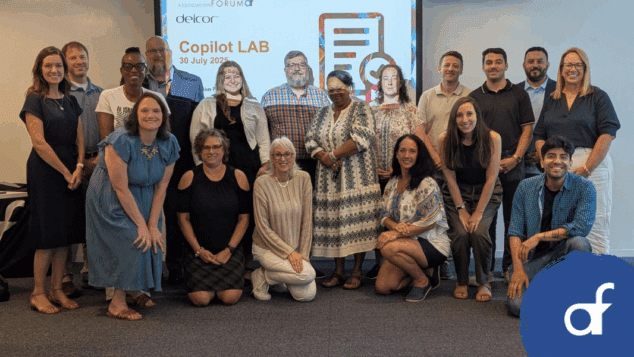Lifelong Digital Learning

E-learning has transformed the educational landscape, presenting challenges and opportunities for associations that provide continuing education. At the same time, professionals increasingly need to be lifelong learners to stay competitive in the modern workplace. Associations are well-positioned to take advantage of new technologies to successfully engage today’s learners, facilitate lifelong learning and drive revenue.
The Association for Supply Chain Management (ASCM) did just that when it shifted its print-based, face-to-face courseware to BenchPrep’s configurable cloud-based learning platform. The modernized approach allows ASCM to cater to busy, on-the-go supply chain professionals through on-demand learning that can be consumed in small chunks and is available on any device. Users get a personalized learning experience that, according to ASCM, can encourage remediation and increase knowledge retention.
An Opportunity to Seize
Headquartered in Chicago, ASCM is the largest nonprofit association for supply chain professionals. ASCM works with its 45,000 members, 180 North American chapters, 100 international partners and the general supply chain community to improve every aspect of the supply chain — from supplier to customer — and all the information, money and materials that flow in between.
Known primarily for its three certifications (Certified in Production and Inventory Management [CPIM], Certified Supply Chain Professional [CSCP] and Certified in Logistics, Transportation and Distribution [CLTD]), ASCM has been working to expand its continuing-education offerings to new audiences, including professionals who are new to the supply chain and not ready for certification; workers peripheral to the supply chain, such as those in IT or finance, who need to understand how supply chain works but don’t need certification; and people looking to change careers.
ASCM also wanted to upgrade how it delivered its continuing education.
“Most of our education products were just face-to-face courseware,” says Bob Collins, senior director of learning and development for ASCM. “We really wanted to expand into mobile and online.”
ASCM’s primary educational product is an industry mainstay called Principles of Operations Management, which covers topics essential to the profession. Initially, the program was available only as an instructor-led course, typically hosted by
a corporation or one of ASCM’s 180 chapters throughout North America. Course materials were printed and packaged as participant workbooks, which were sent to each site.
ASCM recognized the need to modernize its educational offerings to meet the needs of today’s workforce. Busy, on-the-go and distracted, the modern lifelong learner wants on-demand education that can be consumed in small chunks. ASCM set out to find a partner who would help it create a user-friendly product that would be available anytime, anywhere, on any device.
“We wanted to have an online, mobile-friendly, self-paced extensive set of courses that folks could use to brush up on skills, learn things they didn’t know and maintain their certifications as well,” Collins said.
Partnership Approach
After researching potential partners, ASCM chose Chicago-based BenchPrep, a configurable cloud-based learning platform, to take its educational products online. BenchPrep works with education and training companies, including credentialing organizations and associations, to help the end user achieve academic or professional success.
Principles of Operations Management was an obvious place to start. Its set of five courses was specifically designed to be mixed and matched. Each could be taught as an individual course, or any of the 45 total sessions could be pulled out and combined with any other sessions. This flexibility allowed companies to tailor education to specific groups of employees. Instructors had access to banks of questions to use for midterm and final exams, depending on the lessons they taught and what the learners needed to know.
“That made it even better online,” Collins said. “We could get down to smaller chunks of material and help people be more focused on the type of education they wanted to get.”
Over the course of more than a year, staff from ASCM and BenchPrep worked together to transform Principles of Operations Management’s roughly 180 hours of face-to-face courses into 10- or 15-minute bite-sized sections. They added quizzes, videos, games and other activities and put all the content on a cloud-based platform white-labeled to ASCM. Because the look and feel of the program is configured based on the ASCM brand, users see a familiar ASCM platform, not an external service, says Ashish Rangnekar, CEO and co-founder of BenchPrep. In many cases, it is integrated with ASCM’s workflow using a single sign-on. After extensive testing and piloting, ASCM rolled out Principles on Demand in January 2019.
The new program gives users the ability to set their own pace and follow personalized learning pathways. Plus, they can earn certification points for their work.
“Not only are users getting best-in-class content, but they’re getting it in a format that is very personalized to them,” Rangnekar said.
In addition to offering the courses to members and other supply chain professionals, ASCM sells individual licenses, or “seats,” to corporations as part of a subscription.
Unlike the printed materials used in the past, the digital learning platform draws on a rich collection of data and analytics to deliver valuable insights to all stakeholders involved: the learner, the instructor and ASCM.
Learners know how they are progressing, where their strengths and weaknesses are and in which areas they need to improve.
Instructors see how each learner is performing, down to how much time he or she is spending on a particular area.
ASCM gains insight into every piece of content: how many times a video has been watched or a lesson has been viewed, and how many users have marked the lesson as high confidence versus low confidence.
“Our job is to give all of the insights to Bob so that his content team can make changes to the program, which leads to overall program success,” Rangnekar said.
Proof in the Numbers
As of March 2020, Principles on Demand was averaging 420 monthly users, who averaged 4.5 learning sessions per month that lasted about 40 minutes per session. When launching the program, Collins said ASCM anticipated (and budgeted for) selling 1,000 corporate seats in the first year. Within 14 months, the association had almost tripled that number, selling 2,900 seats.
The success of the program also created a potential new revenue stream for ASCM, as a couple of large organizations showed interest in reselling the courses as an add-on to their existing education and services.
ASCM had minimal problems adapting to the new platform. But because Principles of Operations Management was created to be an instructor-led course, the material was separated into instructor versus participant. ASCM had to merge the content into a program suitable for self-study.
“It wasn’t particularly difficult work, but it was time-consuming,” Collins says.
Advice to Share
Of the many lessons other associations can take from ASCM’s experience, one of the most crucial is that personalized, digital learning is here to stay (see sidebar).
“There’s a lot of hype around the whole education space and how it’s changing,” Collins says. “Some of it is worth listening to, and some of it is a little exaggerated. But the fact remains that having online, self-paced courses does meet a pretty big market niche and is worth pursuing.”
And associations need not go it alone. BenchPrep brought several capabilities that ASCM would have had to hire or purchase otherwise, including technical expertise and system maintenance. Plus, BenchPrep had the experience of successfully rolling out similar programs with other clients.
“Look for the right partner for you, try something and see how it goes,” Collins says. “You don’t have to invest all your dollars up front.”
Associations have the opportunity to capitalize on professionals’ need for lifelong learning. Those who decide to invest in modernizing their educational offerings can improve member engagement — and their bottom line.
“If done right, this is a phenomenal, high-margin revenue stream for associations,” Rangnekar says. “This is not a cost center. Professionals are willing to pay associations for really impactful learning experiences.”
![]() Learn More Online: Prioritize your own continuing education with a variety of Association Forum’s webinar and online course options. Visit www.pathlms.com/association-forum for a list of upcoming options.
Learn More Online: Prioritize your own continuing education with a variety of Association Forum’s webinar and online course options. Visit www.pathlms.com/association-forum for a list of upcoming options.
- Lifelong learning has become an economic reality. No longer merely a buzzword, lifelong learning is essential to workers who must remain competitive in rapidly changing professions. Companies such as Amazon and AT&T are spending hundreds of millions of dollars to “upskill” and “reskill” their workforces.
- The need for verified credentials is more important than ever. Lifelong learning is even more valuable when it is competency-based. Because learning is a means to an end, like getting a new job or earning a promotion, professionals must demonstrate they have mastered a concept. A verified credential is a great way to do it.
- The modern worker is busy, mobile and distracted. Associations are not only competing for learners’ attention with other associations and continuing-education providers; they’re competing with the likes of Amazon, Facebook and Netflix. The challenge is figuring out how to meet learners where they are.
- Content is still king, but it’s not enough. It takes more than great content to engage today’s professional. To be successful, content must be integrated into a meaningful, personalized, immersive learning experience that can be delivered across multiple devices.
Tags
Related Articles
Work/Life: What Tech Tools Have Helped Shape Your Work and Life?
Technology touches everything from our professional work to our personal downtime. Association professionals tell us...
Turning AI Into Member Value
How AAE’s Save Your Tooth Month GPT became a personalized marketing assistant for members
The Power of Taking the AI Journey Together
Forum’s first Microsoft Copilot Lab brought together 20 professionals to explore how smart adoption of...




